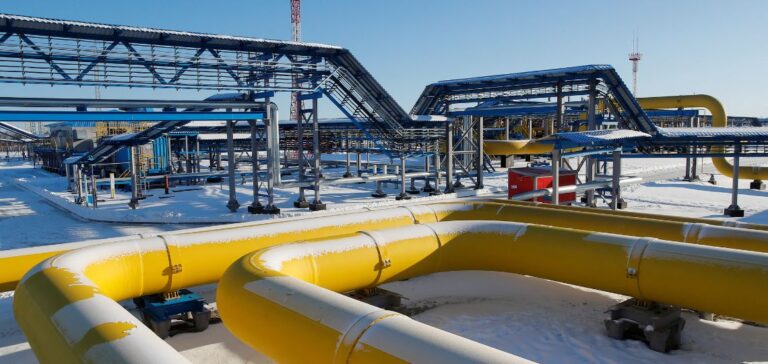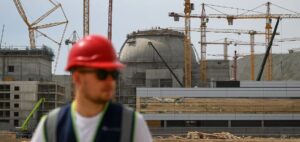Ukrainian Energy Minister German Galushchenko has ruled out the possibility of Kiev taking part in discussions with Russia on gas transit arrangements after the existing five-year agreement expires at the end of 2024.
Gazprom continues deliveries despite the war, but Ukraine refuses to negotiate an extension of the gas agreement
Despite the war, Russia’s Gazprom continued to deliver gas to Europe via Ukraine under the current contract, with volumes delivered to the Sudzha interconnection point on the Russian-Ukrainian border. However, Mr Galushchenko said in an interview with Voice Of America on August 16 that Ukraine would “certainly not take part in negotiations with the Russians” on a possible extension of the five-year agreement.
“It’s absolutely obvious. Mr. Galushchenko added that 2024 would be a key year for assessing whether Europe could do without Russian gas. “I see all the conditions for this,” he declared.
In December 2019, Naftogaz, network operator GTSOU and Gazprom signed a five-year gas transit agreement based on the “ship or pay” principle, which means that Gazprom is obliged to pay for transit, whether it uses it or not.
Reduced deliveries: Gazprom fails to meet gas contract levels with Ukraine
Gazprom has committed to transporting 110 million m3/d of Russian gas to Europe via Ukraine in 2023 and 2024 – a total of 40 billion m3/year – before the contract expires at the end of next year. However, since May 2022, Gazprom has been delivering less gas than contracted for, and paying less than agreed.
Russian gas deliveries to Europe via Ukraine totaled just 8.23 billion m3 in the first seven months of 2023, down 41% on the previous year and 68% on 2021. In July, Gazprom pumped only 35% of its contracted volume, according to the Ukrainian gas industry group AGPU. Russian gas flows via Ukraine currently enter Sudzha at a rate of around 42 million cubic meters per day, equivalent to around 15.3 billion cubic meters on an annual basis.
Force majeure at Sokhranivka: Gazprom and Ukraine face contractual disagreements
In May 2022, Ukraine declared force majeure over its ability to transit incoming Russian gas through an alternative entry point at Sokhranivka, stating that it no longer had operational control over infrastructure in parts of eastern Ukraine. In response, Gazprom declared that it would only pay for services rendered, despite the ship-or-pay clause in the transit contract.
Naftogaz proposed to Gazprom to transfer transit to Sudzha – the only operational entry for Russian gas into Ukraine at present – but this option was not taken up. Up to 33 million m3/d of Russian gas could enter Ukraine at Sokhranivka before the force majeure. Galushchenko said Russia’s actions remained unpredictable.
“She can terminate this contract at any time. It’s absolutely clear that this has nothing to do with legal formalities,” he said.
Falling Russian gas exports to the EU: Impact on prices and declining market share
The Russian pipeline now accounts for just 8% of EU imports, compared with 45% before the invasion of Ukraine in February 2022. Falling Russian gas exports to Europe have helped push gas prices to record levels in 2022.
Platts, part of S&P Global Commodity Insights, has priced the Dutch TTF benchmark one month ahead of schedule at a record 319.98 euros/MWh on August 26, 2022. Prices have fallen sharply since then thanks to healthy storage levels and reductions in demand, but they remain relatively high, with Platts valuing the August 16 monthly TTF price at 37.98 euros/MWh.





















